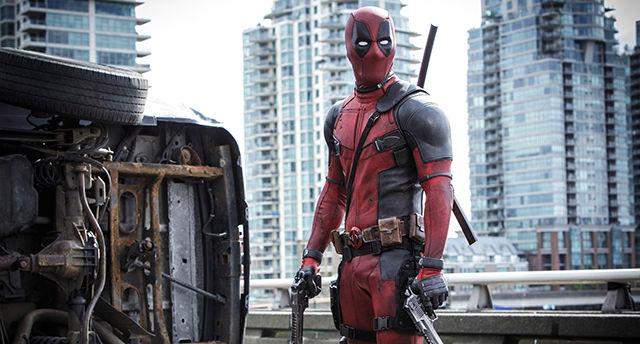 “Deadpool” is breaking box office records in a genre dominated by huge blockbuster sequels and legendary franchises. " />
“Deadpool” is breaking box office records in a genre dominated by huge blockbuster sequels and legendary franchises. " />
Source: 20th century fox
“Deadpool” is breaking box office records in a genre dominated by huge blockbuster sequels and legendary franchises.
Deadpool isn’t your typical superhero. He loves killing his opponents, hates being a hero and is always ready to crack a highly irreverent joke about practically any topic. Now after years of development struggles, Fox finally gave the trigger-happy, katana-wielding, fourth wall-breaking “merc with a mouth” his own movie.
Now that it’s here, the question on everyone’s mind has been: Can an R-rated Marvel comic movie about a notoriously irreverent X-Men character stand on its own?
The thing about “Deadpool” is that it adheres so strictly to a generic superhero origin story that’s part of the way it provides commentary on the genre. Told in flashbacks while the main action is taking place, we see Wade Wilson (Ryan Reynolds) as an ex-Special Forces operative turned street-level mercenary. Upon finding an unexpected romance with a woman named Vanessa (Morena Baccarin), things are going great for Wade until he gets the news that he has cancer.
Soon after, Wade is recruited for a rogue experiment in which he is promised that his condition will be healed. This is of course where the supernatural element comes into play, as this shady organization turns him into a mutant with regenerative abilities, hoping to make him a weapon. Once he escapes and is left with a grotesquely deformed body, Wade uses these newfound abilities to become Deadpool and seek vengeance on the organization’s nefarious leader Ajax (Ed Skrein).
The movie is at its best when it pokes fun at superhero movie and blockbuster tropes, particularly regarding Reynolds’ infamous failures “Green Lantern” and “X-Men Origins: Wolverine.” Fourth-wall jokes about characters showing up to advance the plot, or having only a couple of X-Men appear due to a limited budget, will strike a chord with most viewers.
Screenwriters Rhett Reese and Paul Wernick provide a truly faithful adaptation of the source material. While they probably could’ve concocted a more watered-down, kid-friendly version, this movie was clearly made as a fan service, and as such, holds nothing back in terms of its relentlessly crude humor and violence.
However, despite the script being a huge component of the movie’s entertainment level for the right audience at least its major flaw is the same Marvel syndrome we see over and over again. As a villain, Ajax is a walking caricature with no depth whatsoever. Perhaps this was a little more intentional so as to make fun of this cliché (he is introduced in the opening credits simply as “a British villain”), but still it’s past time for Marvel movies to fix this.
For his feature-length debut, director Tim Miller creates a vibe and aesthetic which feels more indie and stands out from the typical flashy superhero blockbuster. Aside from the red spandex, the film is pretty devoid of bright colors. There’s a lot of grey, tight framing and close-ups, and even a few noir-like night scenes. Granted, “Deadpool” is a fun, action comedy, but Miller knows how to handle the dark humor, as well as the potty jokes. After all, the movie makes audiences laugh at moments when bad guys are decapitated and there are limbs flying in the air.
Yet, beyond the gory comic violence and raunchy humor, it’s Reynolds who carries the movie. Whether it’s his charming persona or simply his love of the character, the Hollywood favorite makes this performance one comic fans will remember. “Deadpool” co-creator Rob Liefield has described Spider-Man as his greatest influence for the character, which is extremely evident in the movie. Reynolds portrays him as an over-the-top trash-talking version of the web slinger, which helps keep the movie’s momentum going.
“Deadpool” is the kind of movie a number of audiences will appreciate and others will scoff at. For fans of the character and those who like raunchy action comedies, this is the movie you’ve been waiting for. But please, don’t take kids to see it.